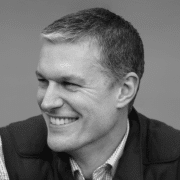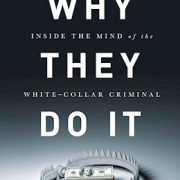Corruption, Trends and Predictions: An Interview with Richard Bistrong, Part 2
Part two of our interview with Richard Bistrong, CEO of Front-Line Anti-Bribery LLC [read part 1]
 How has corruption changed since you were prosecuted? Could someone get away with the same behavior now?
How has corruption changed since you were prosecuted? Could someone get away with the same behavior now?
The FBI has tripled its investigatory resources, and the real teeth of international law enforcement cooperation, which I experienced as a covert cooperator in the US and UK, has significantly increased, becoming more sophisticated over the last 5 years, as we have seen in a number of global investigations.
My own getting caught should be a cautionary tale for others. I was ultimately targeted as a result of a UN investigation of a third party contract that had nothing to do with me. So international business personnel should be very aware of how investigators can connect the dots among parties from different jurisdictions.
Is technology limiting or facilitating corruption?
The corrupt conversations among intermediaries and public officials are still very much face to face, and far from the home office. Bribery today utilizes language that is usually very colorful, with very descriptive terms, other than the word bribe. As we have seen in recent enforcement actions, there is still an effort after those face to face corrupt conversations to disguise the language and transactions in confirming emails and follow up e-communications.
Expand on the theme of how to properly reward people in high-risk areas as to ‘tip’ away from engaging in corruption; or, as you share, to avoid a zero-sum game between compliance and business success.
There are a number of different components of compensation that impact your question. Also, lets keep in mind that some of the better business development people out there have risk taking in their DNA. So, I think that should always be considered; you want top performers, but only those who think of ethical business decisions and solutions; accordingly, incentives are an important component of rewarding those behaviors. So, here are a few variables:
- How much of overall compensation should be incentive based, and, should compensation be indexed to individual (hedonic) or group (social) performance?
- How often should performance goals be measured and forecasted? Annually? Quarterly? Bi-annually?
- Quarterly measures in what we might consider to be low integrity regions can lead to what I have called “bribing not to lose.” This relates to the theory of “loss aversion” where, in real life, a sales person could have their quarter, quota, forecast and bonus sitting on a dock somewhere or paperwork on someone’s desk that is being ransomed for a small bribe. Then what?
- Quarterly measures increase the risk that a front line employee, even out of their own pocket, might invest what we consider to be a small amount of cash in order to meet their target and hence, their own bonus by ‘making’ plan. However, to mitigate, there is a simple formula: the higher the corruption risk, the longer the time horizon should be in terms of measurement. Long-term forecasts in low-integrity regions are a strong tipping point away from having someone ponder, “what does management really want, compliance or quota, as I can’t deliver both.”
- Quarterly measures in what we might consider to be low integrity regions can lead to what I have called “bribing not to lose.” This relates to the theory of “loss aversion” where, in real life, a sales person could have their quarter, quota, forecast and bonus sitting on a dock somewhere or paperwork on someone’s desk that is being ransomed for a small bribe. Then what?
Adam Grant identifies “givers and takers” as a filter for weeding out those that may exhibit poor ethical decision making. Do you think you were a taker before you started working overseas? In other words, how much did your environment influence your behavior?
The environment of international sales, especially in high-risk areas, is often dominated by large procurements that are few and far between. Purchasing tends to be concentrated at the national ministry level. That creates an enormous “win big / lose big” dynamic on the front lines.
In addition, in many of these regions, the institutions of state are weak, marked by poorly trained and inadequately compensated procurement personnel, along with procurement regulations that are deliberately confusing. In these situations, intermediaries present themselves as there to work the system and ‘move things along’ through the intertwining of corrupt and legitimate business services. That is the crossroads of commerce and corruption.
Thus, the environment has an enormous impact on front line teams where they operate far from home office and with little oversight. As Jamie-Lee Campbell shared in “Culture Corrupts” (J Bus Ethics, 2014) you start to think of yourself in the “social cocoon” (Ashforth and Anand 2003) of corruption where among third parties, front-line personnel and public officials, everyone shares “positive attitudes and behavior towards corruption that differ from the negative perspective that society holds toward corruption.” To ignore the impact of the environment brings peril to both the company and its field personnel.
How can compliance leaders do a better job of identifying corrupt practices/people?
The first thing they can do is to bring in their front line business teams and field personnel and listen to them. Compliance leaders should ask them about the real world risk and struggles which they encounter in their work and get them talking.
The more upset compliance is by what they hear, the better those conversations are going. Why? You can fix what you know.
When front line teams feel comfortable to share the issues that they face in the field, compliance can partner with them to develop real world tools that are calibrated to the risks they face.
I also recommend that compliance leaders travel with field personnel, together, for a few days. This goes back to opening up a dialogue. Sales people have a very basic DNA, that when they feel their voice is embraced in the development of policy, they are more likely to embrace those policies, rules and procedures.
Human Resources should also be brought into the conversation; while HR is often tasked with compliance training and documentation, they are often walled off from the development of incentive packages. Why not bring them in as an objective set of eyes to make sure that bonus plans are well aligned with anti-bribery compliance?
Front line personnel need to understand that by participating in bribery, even small bribes, that they are now part of the eco system of a criminal enterprise which robs local populations of much needed services, and results in preventing social and economic development.
There is a lot of talk about how can companies move from a culture of compensation to a culture of ethics. What would need to happen at the corporate and individual level for this to succeed- especially in places where corruption is prevalent?
It starts at strategy; is the company, from a strategic level, interested in bringing long-term and sustainable business to even high risk areas? That might mean walking away if it can’t be done ethically; or, it might require a longer ROI. Regardless, it requires a strategic commitment by management. The challenge is that not every company has the wherewithal to sustain that investment, and smaller to mid-sized organizations might not have the resources to understand the risk until they are ‘all in,’ But organizations that can collect the risk data prior to committing personnel and resources should go into these markets with a clear eyed view of the risks they face. The smaller organizations should also carefully consider these markets; as recent enforcement actions have demonstrated, investigators and prosecutors don’t discriminate by the size of a company,
Scott Killingsworth talks about escalating commitment, and there is always a danger that where resources are committed that a company might follow the wrong path once they put the stake in the ground. GE and Siemens are great examples of how this can be avoided, by an ethical and coherent business strategy, well before the sales process starts; but not every company has those balance sheets.
What are some of the trends in anti-corruption / anti-bribery field / legislation?
Certainly we are seeing more cooperation among international law enforcement agencies. Also, the OECD is doing a great job in their reports on publicly calling attention to countries that are increasing their anti-bribery legislation and enforcement, while at the same time drawing attention to those countries that are not living up to their international agreements. The pressure seems to be working.
What is the future of FCPA enforcement?
I can measure the future of what I see in the public domain. The FBI budgetary increases demonstrate a significant commitment to upholding and enforcing the law. Combining that with the ability to gather and collect evidence through international “mutual legal assistance treaties” and the cooperation of international investigators, we see resources and methodologies that are certainly on the rise. While not an FCPA case, the FIFA arrests and indictments show the strength of those arrangements and commitments.
What are some resources that people should read to gain a better sense of how a well-designed ethical system can help curtail corruption?
Understand the behaviors and business strategies before understanding the bribes. The contributions of [two Ethical Systems collaborators] Francesca Gino, in particular, along with Dan Ariely, are invaluable content for the anti-bribery / compliance community. Understanding how people think forms a strong foundation to a compliance program. It makes anti-bribery compliance more than a ‘bolt-on’ set of rules and procedures that might be viewed as a ‘work around’ at the front-lines, to everyone’s peril.
In addition, The Harvard Business Review recently published a trio of articles on compensation which makes for excellent reading and is very much applicable to teams operating in high risk areas.
For those on the front lines who thought, like I did, that bribery is a victimless crime, or worse a win-win at the business level, I recommend “Thieves of State” by Sara Chayes and “The Looting Machine” by Tom Burgis. Each should be required reading.
And finally, share my own story. I was well educated (MA, University of Virginia) and compensated. I didn’t have to take any risk and spent 14 ½ months in prison as a result of poor, yet avoidable, decisions. The impact of incarceration upon health and family was awful. It wasn’t worth it. So for those on the front lines, think about that the next time you are jet lagged, pressured to meet quarter, and making compliance decisions ‘on the fly.’ As I often share, in those situations, call home. Not to compliance, but to your loved one’s. Is it worth it losing those bonds for what is at best a short-term gain? It wasn’t for me.
About Richard Bistrong:
Richard Bistrong spent his career as an international sales executive and currently consults, writes and speaks on foreign bribery and compliance issues from that front-line perspective. Richard now blogs at www.richardbistrong.com.
Information about Richard’s consulting practice, Front-Line Anti-Bribery LLC can also be found on his website. Richard can be reached via e-mail at richardtbistrong@gmail.com









